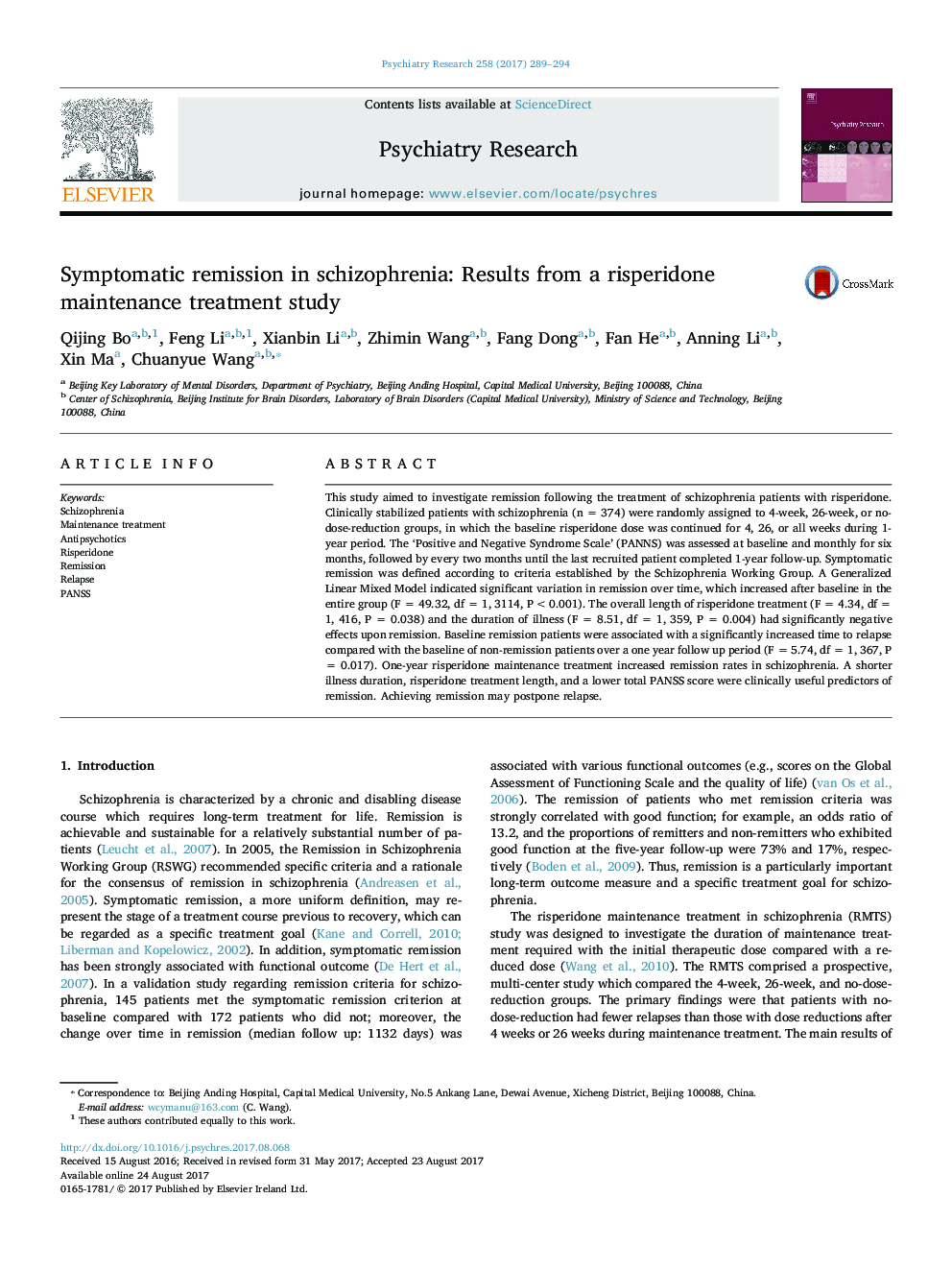| Article ID | Journal | Published Year | Pages | File Type |
|---|---|---|---|---|
| 6812100 | Psychiatry Research | 2017 | 6 Pages |
Abstract
This study aimed to investigate remission following the treatment of schizophrenia patients with risperidone. Clinically stabilized patients with schizophrenia (n = 374) were randomly assigned to 4-week, 26-week, or no-dose-reduction groups, in which the baseline risperidone dose was continued for 4, 26, or all weeks during 1-year period. The 'Positive and Negative Syndrome Scale' (PANNS) was assessed at baseline and monthly for six months, followed by every two months until the last recruited patient completed 1-year follow-up. Symptomatic remission was defined according to criteria established by the Schizophrenia Working Group. A Generalized Linear Mixed Model indicated significant variation in remission over time, which increased after baseline in the entire group (F = 49.32, df = 1, 3114, P < 0.001). The overall length of risperidone treatment (F = 4.34, df = 1, 416, P = 0.038) and the duration of illness (F = 8.51, df = 1, 359, P = 0.004) had significantly negative effects upon remission. Baseline remission patients were associated with a significantly increased time to relapse compared with the baseline of non-remission patients over a one year follow up period (F = 5.74, df = 1, 367, P = 0.017). One-year risperidone maintenance treatment increased remission rates in schizophrenia. A shorter illness duration, risperidone treatment length, and a lower total PANSS score were clinically useful predictors of remission. Achieving remission may postpone relapse.
Related Topics
Life Sciences
Neuroscience
Biological Psychiatry
Authors
Qijing Bo, Feng Li, Xianbin Li, Zhimin Wang, Fang Dong, Fan He, Anning Li, Xin Ma, Chuanyue Wang,
